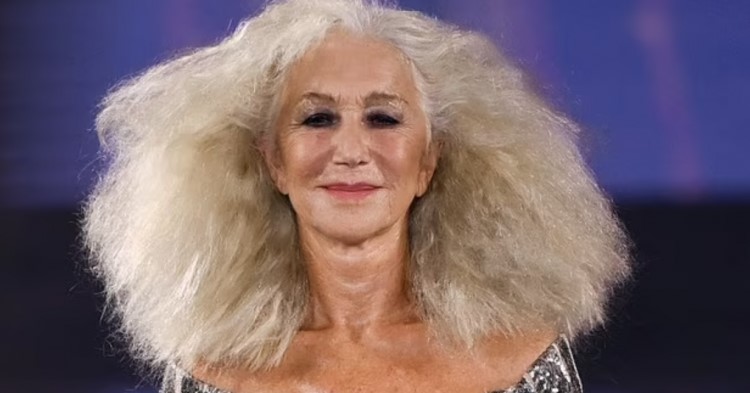Veteran actress Helen Mirren, known for her exceptional acting skills and versatility, has found herself embroiled in a casting controversy due to her decision to portray the former Prime Minister of Israel, Golda Meir, in an upcoming biopic titled “Golda.” Despite the backlash she faced for her non-Jewish background, Mirren recently addressed the controversy in an interview with Radio Times, shedding light on her reasons for taking on this challenging role.
At the age of 78, Helen Mirren is no stranger to stepping into diverse roles that require her to embody characters from various backgrounds and walks of life. In the Radio Times interview, she reflected on her previous portrayals of Jewish characters in films like “Woman in Gold” and “The Debt.” Still, she acknowledged that the role of Golda Meir was a unique and “uber-Jewish” character compared to her past experiences.

Mirren revealed that she had a candid conversation with Guy Nattiv, the Israeli Jewish director of the film, about her non-Jewish heritage before accepting the role. She expressed her willingness to step aside if her casting was problematic due to her background. However, Nattiv’s response was affirmative, emphasizing that her suitability for the role transcended her heritage.
The controversy surrounding Mirren’s casting sparked a broader discussion about the ethics of casting choices in the film industry. Notably, writer Nicholas Martin chimed in, emphasizing the importance of authenticity in portraying historical figures like Golda Meir. He argued that Mirren had successfully captured the essence of Meir’s character, even earning praise from a leading Israeli historian who claimed that Mirren was “more Golda than Golda.”
However, the casting debate goes beyond the realm of authenticity. Some argue that there is a growing tendency in the entertainment industry to impose restrictions on artists based on their backgrounds, limiting their creative freedom. Helen Mirren acknowledged this concern, expressing sympathy for writers who might feel constrained when tackling subjects outside their immediate DNA connection.
Helen Mirren’s personal connection to Judaism also played a role in her decision to take on the role of Golda Meir. She believes that she may have Jewish ancestry, particularly on her “London side.” Mirren’s affinity with Jewish people stems from her early experiences, including working in Israel shortly after the Six Day War. Born in July 1945, just months before the end of World War II, she grew up during a period when the world was coming to terms with the profound trauma of the Holocaust. While she acknowledged that her belief might be speculative, she suggested that the trauma of the Holocaust could have a lasting impact on one’s DNA.
The actress also highlighted the complexity of Jewish identity, noting the distinction between Ashkenazi and Sephardic Jews and the intricate tapestry of Jewish heritage. Mirren’s comments reflect the ongoing conversation about identity, heritage, and the ever-evolving understanding of these concepts.
“Golda,” the biopic in question, focuses on the tumultuous 19 days of the Yom Kippur War in 1973, during which Golda Meir, also known as the Iron Lady of Israel, had to make critical decisions that would impact the future of her nation. The film, directed by Guy Nattiv, delves into the controversial choices Meir made during this pivotal period in Israeli history.
Helen Mirren’s involvement in the casting debate is not limited to “Golda.” She recently defended Bradley Cooper, a non-Jewish actor, for wearing a prosthetic nose in the Leonard Bernstein biopic. The use of prosthetics in film to accurately represent historical figures has sparked discussions about the fine line between authenticity and potentially offensive depictions.
Mirren acknowledges the delicate balance required when portraying characters with different heritage backgrounds. While she does not object to using prosthetics when they accurately represent a historical figure’s appearance, she also recognizes the potential for offense when actors adopt physiognomies that might perpetuate stereotypes.
In summary, Helen Mirren’s decision to play Golda Meir in the biopic “Golda” has ignited a complex conversation about casting choices, authenticity, heritage, and the fine line between creative freedom and potential offensiveness in the film industry. Mirren’s extensive body of work, combined with her thoughtful reflections on these matters, makes her an influential voice in these ongoing discussions.
